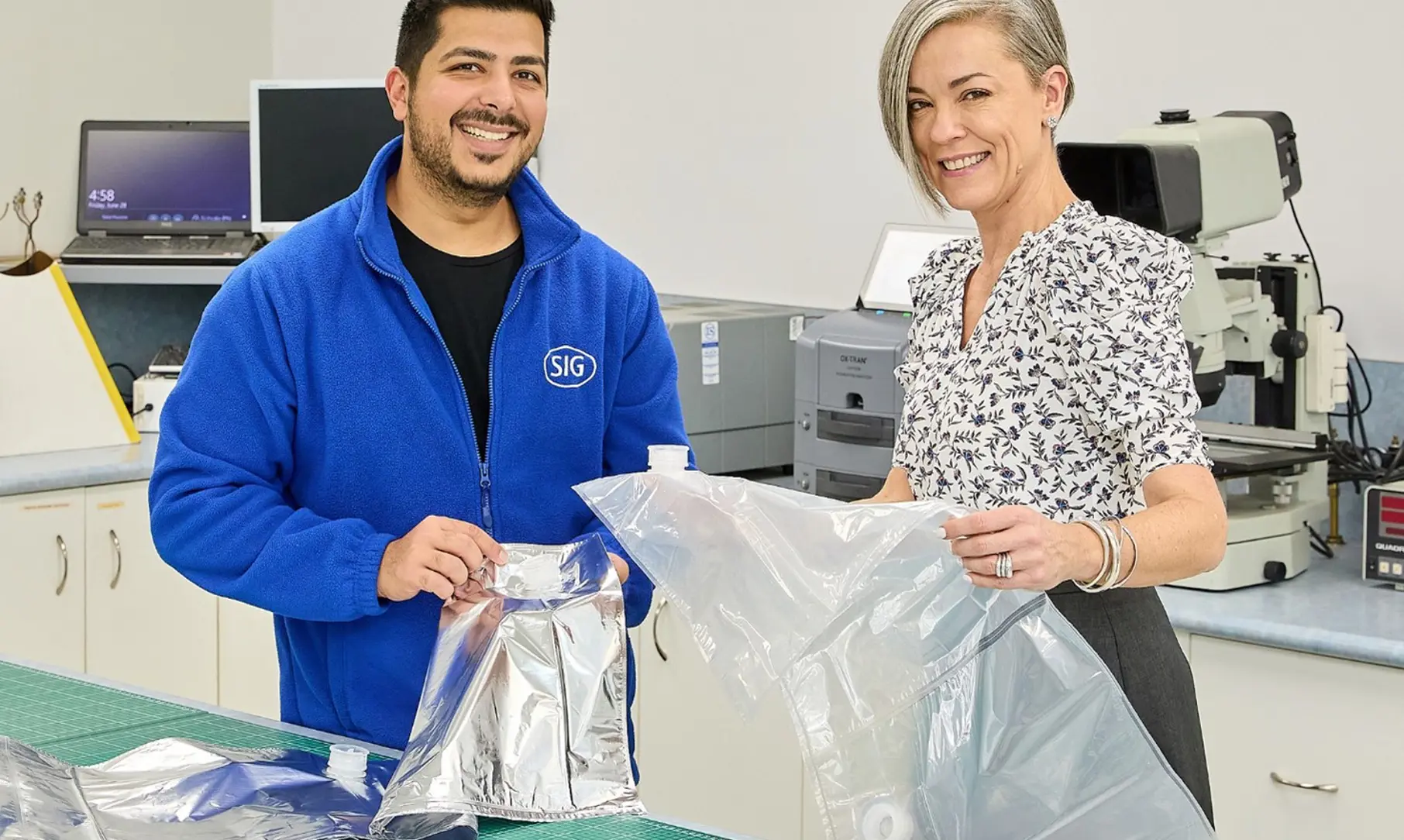SIG, a global leader in food and beverage packaging solutions, has introduced a recycle-ready bag for water, developed and manufactured in Australia. This innovation marks a significant sustainability milestone for the water industry. The current structure, which contains aluminum will be replaced by SIG Terra RecShield, a uniquely formulated material structure with a polymer composition. This means that all components of the bag-in-box packaging are now recycle-ready.
This development is in line with the Australian 2025 National Packaging Targets which aim to further advance sustainable packaging practices. Alongside the industry, SIG strives to lead the way towards a fully circular packaging system and is committed to offer recycle-ready solutions through design for recycling.
Carmen Houston, ANZ Head of Marketing & Sustainability at SIG: “SIG has been working closely with the Australian Packaging Covenant Organization (APCO) who oversees the implementation of the Australian 2025 National Packaging Targets. Our Australian-based research and development team have achieved a significant milestone in advancing packaging technology, with our bag-in-box packaging for water having been assessed through the Packaging Recyclability Evaluation Portal (PREP) as having met the criteria for recyclability in Australia.”
SIG’s bag-in-box packaging is designed to be recycle-ready and reduces the overall plastics use compared to rigid alternatives such as PET water bottles. Bag-in-box is designed to fit any container size or shape, giving brands the flexibility to fill many volumes with a variety of fitments on the same filling machine.
Based on the European CEFLEX guidelines, SIG’s innovative recycle-ready bag-in-box packaging for water demonstrates SIG’s commitment to leading sustainability innovation, and accelerates the timeline to meet the Australian 2025 National Packaging Targets
With a focus on continuous improvement, SIG's Australian Research & Development team is now turning its attention to further minimizing the carbon footprint of packaging. In the coming months, SIG will also introduce recycle-ready packaging alternatives for alcoholic beverages and food service applications.
The new recycle-ready packaging for water is now commercially available and consumers should begin to see it on supermarket shelves in mid to late September.
About SIG
SIG is a leading solutions provider of packaging for better – better for our customers, for consumers, and for the world. With our unique portfolio of aseptic carton, bag-in-box, and spouted pouch, we work in partnership with our customers to bring food and beverage products to consumers around the world in a safe, sustainable, and affordable way. Our technology and outstanding innovation capabilities enable us to provide our customers with versatile packaging systems and solutions for innovative products and smart operations, all to address the ever-changing needs of consumers. Sustainability is integral to our business and guides us on our journey to create packaging for better – packaging that gives more to people and the planet than it takes out.
Founded in 1853, SIG is headquartered in Neuhausen, Switzerland, and is listed on the SIX Swiss Exchange. The skills and experience of our approximately 9,000 employees worldwide enable us to respond quickly and effectively to the needs of our customers in over 100 countries. In 2023, SIG produced 53 billion packs and generated €3.2 billion in revenue. SIG also has an AA ESG rating by MSCI, a 13.9 (low risk) score by Sustainalytics, Platinum CSR rating by EcoVadis, and is included in the FTSE4Good Index. For more information, visit our website.
For insights into trends that drive the food and beverage industry, visit the SIG blog.
Your contact for media inquiries:
PRecious Communications for SIG
Tel: +65 6303 0567
Email: sig@preciouscomms.com
Michelle Bong
Email: michelle@preciouscomms.com
Mobile: +61 422 966 013
SIG, a global leader in food and beverage packaging solutions, has introduced a recycle-ready bag for water, developed and manufactured in Australia. This innovation marks a significant sustainability milestone for the water industry.

